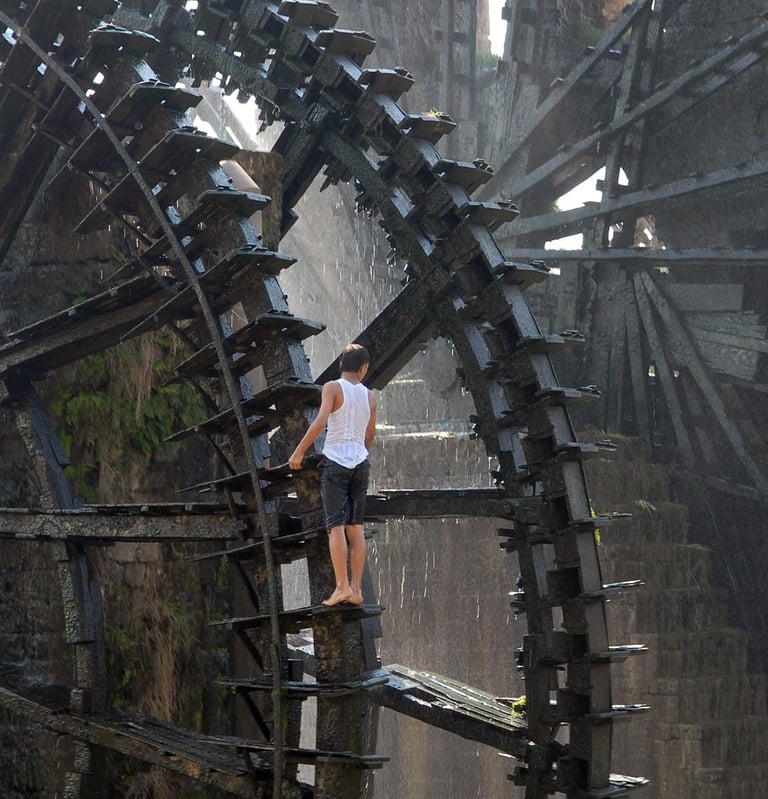The Syrian War Needn’t Have Happened?
Jan 12, 2017
According to Vladimir Putin honest diplomacy is like dry water. Maybe that’s not always true. There were diplomats who tried to find a solution to the war in Syria. One of them was Lakhdar Brahimi – great guy. He really tried.
Some critics of western attempts to manipulate the Syrian war might have felt vindicated by a March 2016 interview with Brahimi (link below). In 2012 a handful of Putin-loving pariahs had claimed the Russians were right and that the west had scuppered the deal that could have stopped the slaughter in Syria (and subsequent deals).
In 2012 the ” international community” in the form of the US, the UK and France in their proposals to the UN Security Council, made two unrealistic and almost certainly disingenuous demands as preconditions for talks with the Syrian government. One, Assad must go (still being repeated). Two, the Syrian military must undertake to stop firing and withdraw from all cities and towns, without a corresponding undertaking from armed opposition groups.
The likelihood of Assad “going” when he and his cadre held all the power was close to zero. The likelihood of the Syrian regime withdrawing its military from towns and cities while they believed, correctly, that foreign-funded armed groups were trying to take them over was also near zero
If the Syrian army had unilaterally stopped firing, what would have happened? At some point they would have responded to the provocation of insurgent fire by firing back. Then when the conflict started up again they could have been blamed by the west for breaking the ceasefire, thus “justifying” some kind of direct intervention. One way or the other official enemies were going to be blamed. The Russians vetoed the proposal and were universally blamed in the western media for the failure of the peace proposals to the Security Council.
None of this makes the Russian or Syrian governments nice people. They pursue their political “interests” virtually regardless of the human consequences just as the US and the UK governments do.
It’s hard to avoid the conclusion that the US and the UK had no intention of doing a deal to “stop the slaughter”. All their efforts were pushing in the opposite direction. It would have required astonishing naivete to have believed Assad might back down. Apart from that they had a track record. They had repeatedly made similar “offers” to Saddam Hussein before the 2003 invasion of Iraq, offers he couldn’t accept. For their own reasons they wanted regime change in Syria, and thought that by helping to arm a ragbag army of mostly foreign insurgents they could get a quick victory. Some short memories there…
…Hafeez al-Assad was well-known as one of the wiliest politicians ever to walk the earth. Even after he devastated Hama he was named by Margaret Thatcher as the statesman she most admired, I assume (charitably) more for his wiliness than for his ruthlessness. Anyone who knew the story about how he got to power, manipulating and playing one off against the other, could never thereafter underestimate him. As we all know he killed 30,000 or more people in Hama in 1982 after an uprising led by the Muslim Brotherhood and an attempt on his life. He died in 2000.
So he spent 18 years twiddling his thumbs until he died already? No, he spent 18 years trying to guarantee that any subsequent uprising would have no chance of success, consolidating his police state and his power structure with, for example, 15 competing secret services (the US has 17) and an army of 1 million, purged, as was Assad’s wont, and as far as that’s humanly possible of even the thought of dissent.
The current Syrian regime is a decades old structure that consists of much more than just Bashar al Assad and there was no way to get rid of him or it without a bloody civil war or an invasion. Outside powers who tried to get rid of Assad, whether directly or indirectly, were prepared to sacrifice the people whose interests they claimed to have at heart. Neither were Syrian opposition forces calling for outside intervention acting in the interests of the Syrian people. The likely massive cost in lives of a NATO invasion went unmentioned, although the example of Iraq is there for all to see.
Syria is devastated but it’s possible that it needn’t have been. Assad’s regime was determined to keep control of the country but it wasn’t looking for a civil war if it could be avoided. The universal catchphrase almost from the beginning in western capitals and media was “stop the slaughter”. Nobody meant that seriously. If you meant it seriously it had a compelling logic. There was only one way to stop the slaughter and that was to do a deal early on with Assad. Assad had offered deals and had promised “reforms”, promises that nobody trusted, and rightly. It would have been a nasty deal. The regime would have continued imprisoning, torturing and murdering the opposition. They would have done some token reforms and maybe a few real ones.
But the result had to have been better than trying to remove an entrenched dictatorship by force.
Long term the Assad regime would not have survived, any more than the Sisi regime or the medieval fiefdom in Saudi Arabia will long survive, or other dictatorships. Pundits may have written off the “Arab Spring” but it has certainly not written itself off. Instead of listening to western “experts” on the Middle East one could perhaps have a chat with some of the workers in El Mahalla El Kubra, a huge industrial area just north of Cairo, long known for protests and strikes, where the Egyptian revolution was fermenting long before it broke out.
Those who write off the Arab revolutions are ignoring a vital aspect. They showed that dictatorships are vulnerable structures that despite being propped up by the “international community” can be overcome, and that it can be done without military force. Consciousness of this can’t be erased by a more-violent-than-Mubarak Sisi. The results of those revolutions could well be global.
The US, the UK and France, with and via Qatar, Saudi Arabia and Turkey have been arming the rebels more or less since the beginning of the Syrian conflict. They have been calling for Assad to go and have been actively pursuing regime change. One of the sources of weapons has been a “rat line” from Libya via southern Turkey, and according to Seymour Hersh (the investigative journalist who exposed the My Lai massacre) of chemical weapons to Al Nusra and associated groups. Hersh deals at length with the chemical weapons issue in the article below, stating that Obama, having ignored Pentagon warnings that his planned massive attack on Syria would send the whole region “up in smoke”, backed out two days before it was to happen because the attempt to pin the Ghouta chemical attack on the Syrian government, which was to be the justification, was unravelling. The British chemical weapons base at Porton Down had warned that the sarin samples from Ghouta didn’t match those known to be held by the Syrian military. Obama had in mind no doubt the “weapons of mass destruction” debacle in Iraq. It wouldn't have been good for his image to be accused of making the same "mistake" committed by George W Bush in 2003.
According to Hersh the gas attack was engineered by Turkey to set Obama up, cross his “red line”, and force him into direct military involvement in Syria. Obama preferred to oversee a civil war from the sidelines while proclaiming his concern for the Syrian people. Erdogan was reported to have been seen at a UN meeting wagging his finger angrily at Obama when it became clear that his strategy had failed.
Obama had by that time seemingly stopped even covert support for rebels for fear of weapons “getting into the wrong hands” though it was clear the US had lost control over the influx of weapons into Syria and they were getting into anybody’s hands who wanted them.
Lakhdar Brahimi says in this interview with Mehdi Hassan (March 2016) that it had been possible in 2012 to do a deal to end the war in Syria and that the Russians had had a “more realistic” assessment and had been right.
http://www.aljazeera.com/programmes/upfront/2016/03/world-betrayed-syria-160311125552629.html





One of the norias نواعير حماة ('wheels of pots') in Hama, Syria
Palmyra, Syria, occupied in 2016 by ISIL forces who used the ancient theatre for public executions of prisoners
Aljazeera March 2016 interview with Lakhdar Brahimi:
'Has the world Betrayed Syria?'
